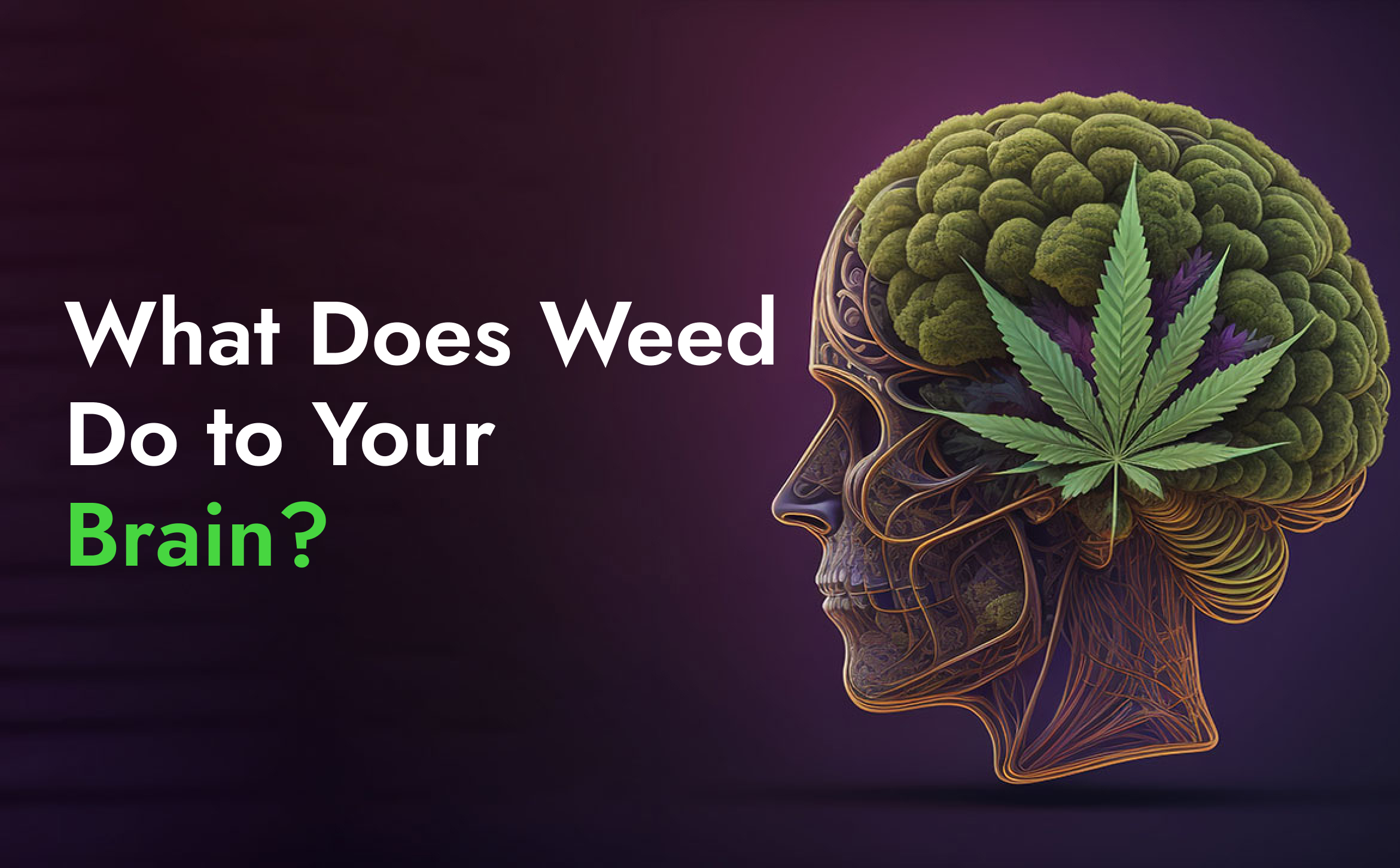Weed, aka cannabis or marijuana, is a psychoactive substance. As such, it can alter your state of mind, perception, and consciousness.
Although regarded as safe for your health in general, prolonged use of psychotropic substances such as weed can introduce several changes in the way your brain works.
In this post, we shall explore both its short-term and long-term effects.
To understand that, it is important first to understand how the brain reacts upon coming into contact with cannabis.
Table of Contents
ToggleThe first hit is always the strongest!
Out of all the herbal chemicals present in a cannabis bud, CBD and THC are two of the most common. While CBD or Cannabinoids are known for their medicinal effects, THC is what gives you the high.
With that out of the equation, let us turn our attention to the matter at hand i.e. exactly what happens to our brain after smoking a joint.
The short answer is, that as soon as we inhale the smoke, hundreds of chemicals present in it including CBD, THC, CBN, and terpenes flood our bloodstream through our lungs, and finally reach our brain. This is when we start experiencing the sensation of euphoria and a heightened sense of relaxation.
Yet, that’s not the case for everybody. While most people do feel pleasant and focused after consuming marijuana, others may not have a positive experience at all.
The effects differ from person to person
Especially, if you are new to it or old enough not to bear its impact.
Even frequent users who are physically fit and mentally fine may start showing adverse effects such as anxiety, depression, and paranoia should the stuff be too potent (if you’re lucky enough).
Heavy users may also experience symptoms of acute psychosis including hallucination, delusion, and an alternated state of perception.
Over time, these unpleasant and temporary reactions may get worse and even put you in danger of schizophrenia which is a serious medical condition, way more risky than psychosis.
Also Read: Benefits Of Marijuana And How It Can Improve Mental Health
How long does it last?
The effects of marijuana may last for up to 1-3 hours depending on how strong or potent the medium of consumption is.
During this duration, the person may experience the signs of-
- Reddening of the eyes
- Dryness of the mouth and throat (Aka cottonmouth)
- Increase in the heart rate
- Tightness of the chest (or heavy heart)
- Drowsiness or dizziness
- Imbalance and unsteadiness
- Lack of movement and coordination
Apart from these physical effects, marijuana may also have some short-term psychological effects which may last for up to 24 hours.
These short-term effects include changes in mood, awareness, thoughts, feelings, behaviour, memory, and the perception of space and time.
What are its long-term effects?
Several studies have been conducted to understand the long-term effects of marijuana on the human brain.
The evidence suggests that prolonged exposure to it can cause both long-term as well as permanent adverse changes in the human brain especially when it is developing.
As a result, babies, children, and teenagers become the most vulnerable to the harmful effects of marijuana and THC.
So, if you are an adolescent, a pregnant woman, or a mother who is breastfeeding, then it is in your best interest to refrain from pot smoking.
Using marijuana should you fall under any of these categories, could impair your judgment and cognition including IQ, attention, memory, learning, and problem-solving.
As far as healthy and wealthy individuals are concerned, the only drawback of smoking weed (other than harming the lungs) is a steady decline of verbal memory which may occur over a lifetime of cumulative exposure to marijuana.
The study which involved over 4000 young adults was carried out over a lengthy period of 25 years and accounted for factors such as demographics, drug/ alcohol use, and other psychiatric conditions such as depression.
Despite that, the results showed no signs of cognitive impairment in adults and their fully developed human brains.
One thing to note here though is that the impact of marijuana on the brain is based on several factors and not solely its consumption.
Some of these confounding factors include:
- The amount of THC or the potency of the stuff.
- Frequency of use.
- Age and the mental state of an individual.
- Simultaneous consumption of other drugs such as tobacco or alcohol.
Conclusion
The effects of weed on the human brain may vary depending on your age, state of mind, and special conditions (if any) such as pregnancy.
Albeit risky for human development or brain growth of those under 18, marijuana consumption shows little to no effects on adults and healthy individuals.


